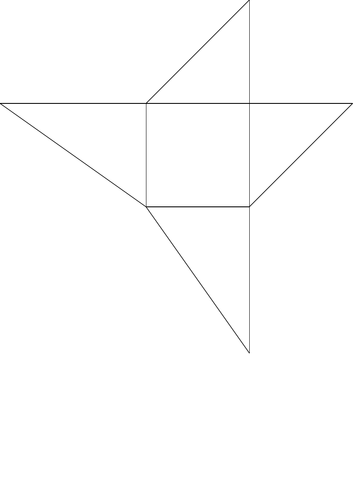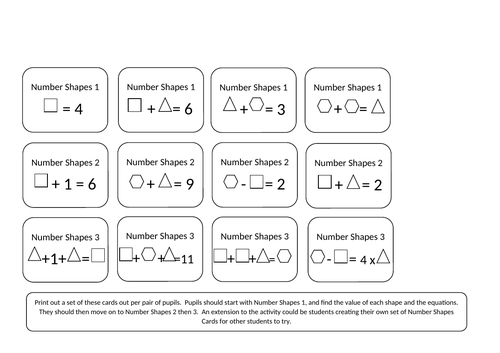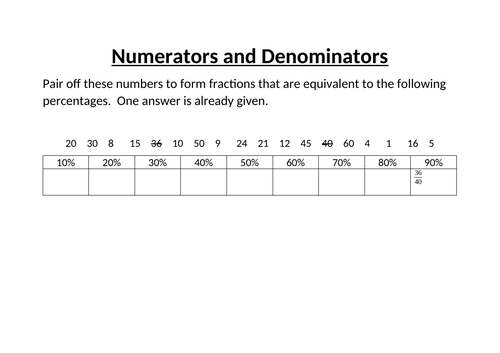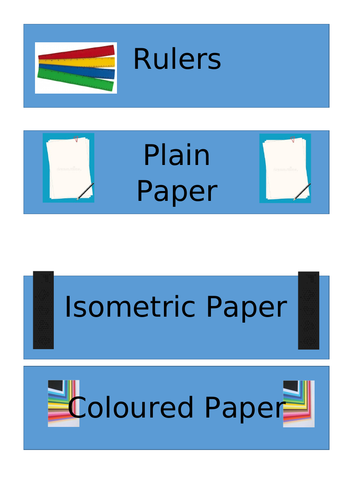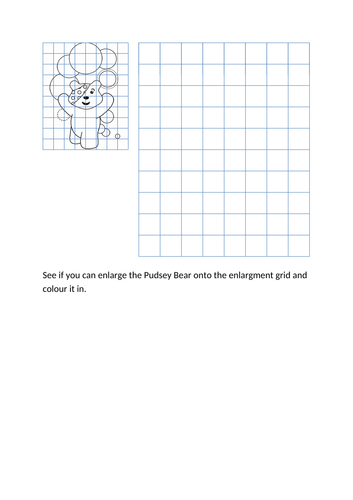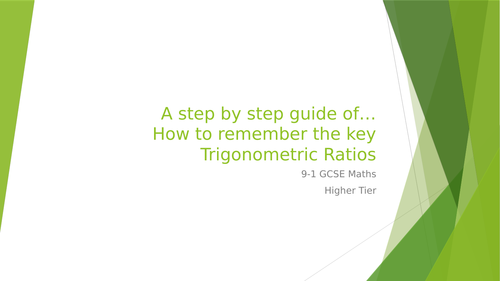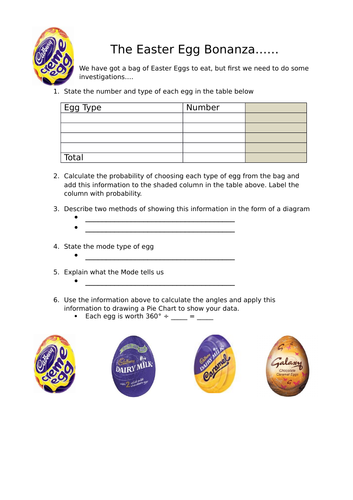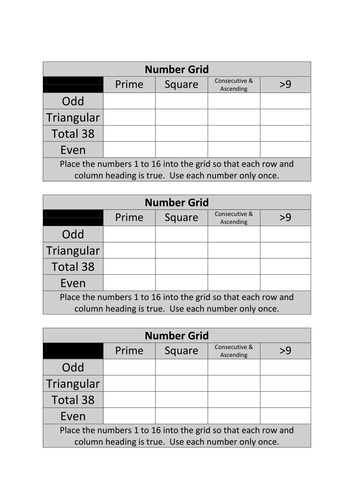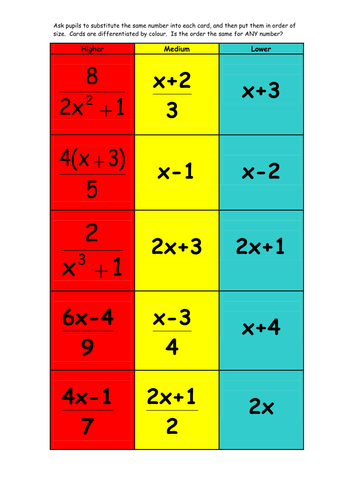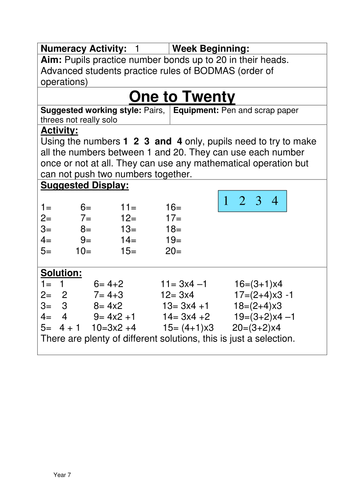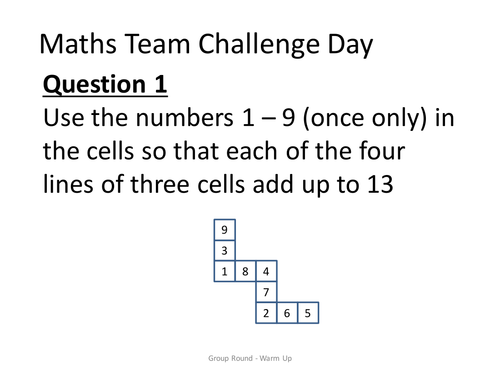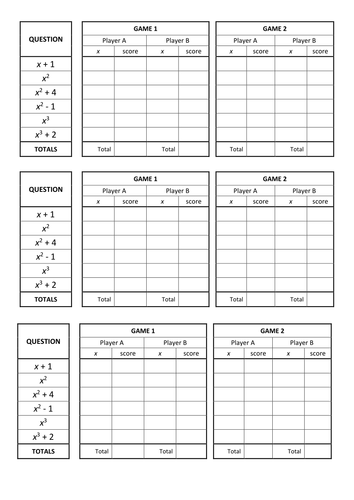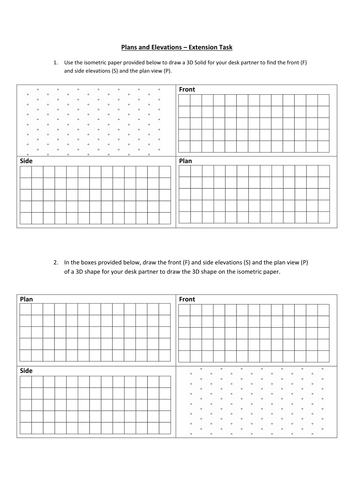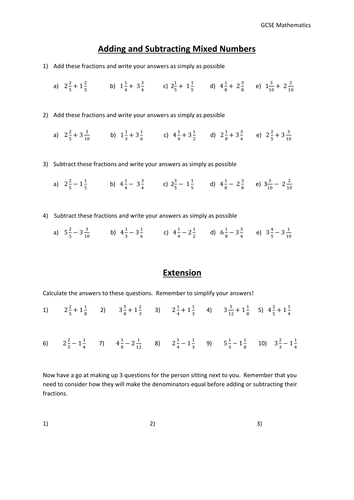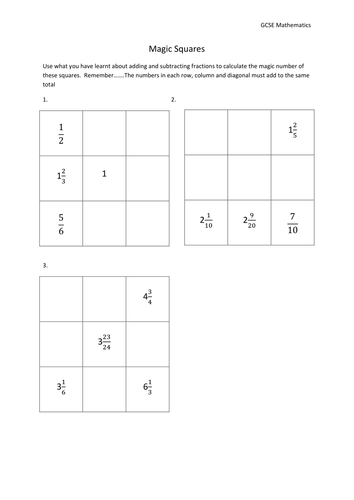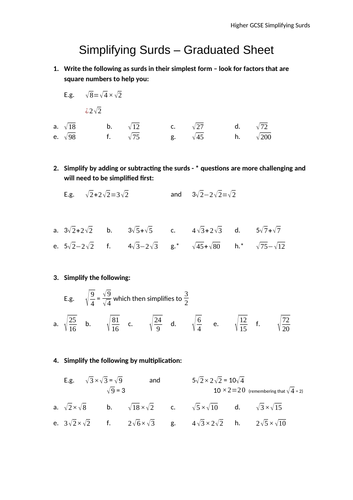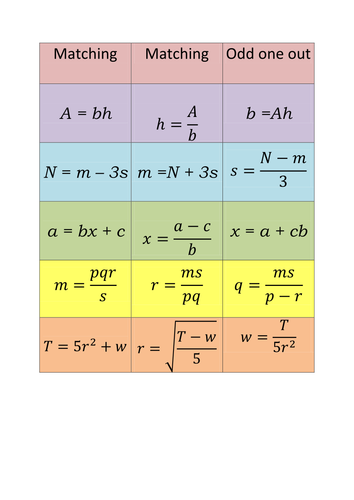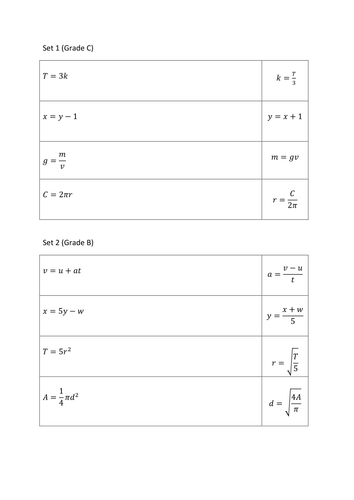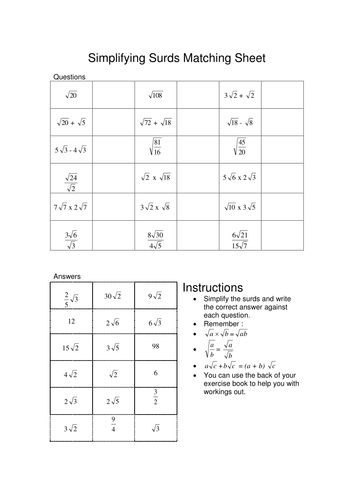
20Uploads
6k+Views
847Downloads
Mathematics

Square Based Pyramid Net (3 x Make a Cube)
This Pyramid Net has been designed to show why the formula is 1/3 Base Area x Perpendicular Height. Make 3 of them and they fit together to make a Cube which will help pupils understand where the formula comes from. Pupils can easily make 3 or it can be carried out in a small group of 3, so that when they come together they can make a cube.

Number Shapes Cards x 3
There are 3 sets of 4 cards getting progressively harder. For each set, pupils have to find the value of the shapes using the equations simultaneously.

Equivalent Fractions and Percentages
This resource asks pupils to find fractions, using certain numbers, which are equivalent to percentages 10%…90%
It is a starter activity which really ensures that students cannot only simplify fractions but equally are able to convert between fractions and percentages

Equipment Drawer Labels Maths
A set of drawer labels for your classroom equipment which can be cut out and stuck onto your classroom drawers with double sided tape or you could print only large labels

Memorise Trigonometric Ratios of 0, 30, 45, 60 and 90 degrees
For the new 9-1 GCSE pupils now have to learn and recall the trigonometric ratios for at least 30, 45 and 60 degrees. This presentation will give pupils a method of learning each value and be able to contruct a table in a systematic way to aid memory. The resource includes both the presentation and the table blanks too.

Easter Statistics with chocolate eggs
For this resource you need a selection of 30 mini chocolate eggs/bunnies etc in a bag. Pupils look at the different types of eggs that they have and then calculate some statistics and complete a pie chart. You could adapt it to make it more or less structured. I used this for lower ability groups in Years 7, 8 & 9.

Number Grid Puzzle looking at Primes, Squares and Consecutive Numbers
This is a simple grid asking pupils to place the numbers 1 - 16 each once into a grid with certain conditions applying to the rows and columns. This is a fun starter activity engaging pupils in different types of number. A solution is provided.

Substitution Order Cards
A differentiated substitution activity. Pupils can roll a dice and then substitute their score into each of the cards and then place them in order of the answers. There are 3 levels of card....is the order the same regardless of the number that is substituted? What happens when you substitute a negative into the cards?

Year 7 Numeracy Resources - 4 Weekly activities
A bundle of activities to be completed in Mentor Time with Year 7 Mixed Ability. I devised these some time ago, but have decided to dust them off and let my Year 7's have a go at them - they are fun and thought provoking!

Primary Year 5 & 6 Gifted and Talented Maths Team Challenge Day Resources
I have gathered a series of fun activities and questions together to form a Year 5 and Year 6 Maths Team Challenge morning. I completed this with teams of 4 pupils (2 Year 5 and 2 Year 6) from various feeder primary schools in our local area. Each group was supervised by one of my Year 10 top set pupils, which enabled them to show leadership and understanding of how younger pupils work. It is quite similar to how the Secondary Maths Team Challenge for the UKMT works, and was adapted for primary pupils to encourage Primary Schools to work with Secondary Schools.

Dice Substitution Game
This is a game usually played in pairs, but can be played with up to 4 players. Pupils take it in turns to throw a dice, and then substitute the value thrown into one of their expressions on their sheet. The values of the expressions are then totaled at the end of the game, and the player with the biggest score is the winner. To make the game harder, you could have the player with the smallest score the winner.

Plans and Elevations Extension Work
This is a worksheet designed to be used as pair work for pupils who need an extended task. Pupils are asked to draw a 3D solid so that their desk partner can draw the plan view, side and front elevations, and also they are asked to draw the plan view, front and side elevations for their desk partner to draw the 3D solid. Pupils can make them as difficult as they like! This is a tricky extension activity for some, but really demonstrates progress and understanding in this topic.

Adding and Subtracting Fractions - Mixed Numbers
A series of questions adding and subtracting mixed numbers, an extension section and also space for fast finishers to write their own questions.

Adding Fractions Magic Squares
This is a series of 3 magic squares which pupils solve by adding and subtracting fractions.

Simplifying Surds - Progressive Sheet
This sheet gives simple examples and a series of questions to accompany each example. It is good with GCSE groups who are not all at the same level, and can be used as a revision resource. I have also added a PowerPoint with each of the questions split into slides with the answers too.

Rearranging - Which one is the odd one out?
This is a simple set of Matching cards that looks at a series of rearrangements. There are two formulae which could be a rearrangement of each other and then one that is the odd one out. Sets of these can be cut out and put into individual bags for a starter activity in pairs and groups. It has been designed to generate discussion about rearranging and the rules that apply. I have used it with GCSE and my Year 9 high ability group.

Rearranging Formulae for GCSE - Staged Worksheet
This is a staged worksheet from C Grade to A* that shows a series of examination questions where the question and the final answer are both given. The idea is that the pupils show the correct stages of working out to gain as many method marks as possible.

Surds Matching Activity for GCSE Mathematics
This resource gives the questions and solutions in a matching activity for GCSE pupils studying Higher Tier Mathematics

